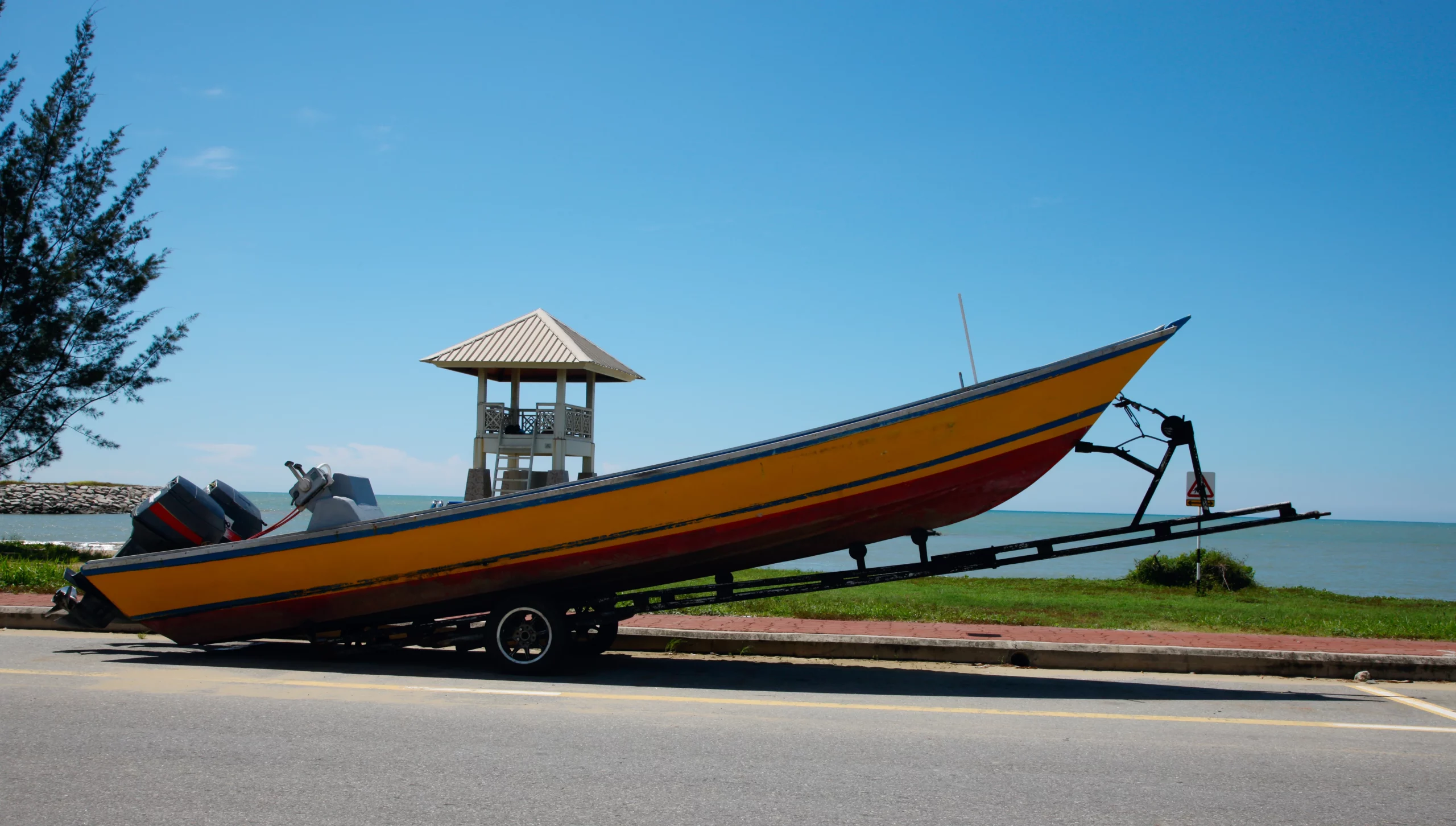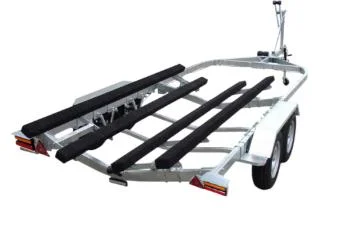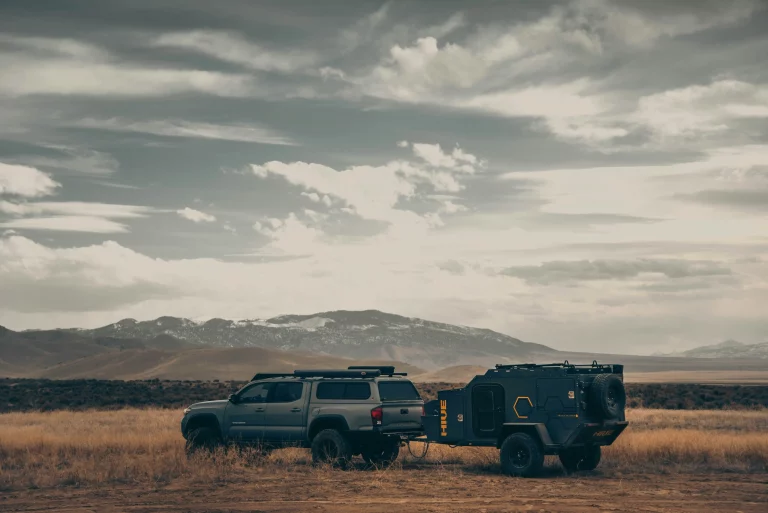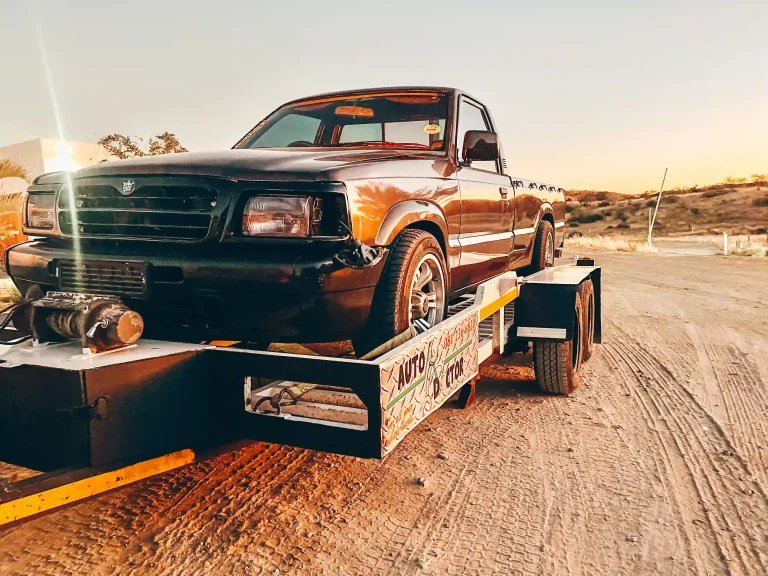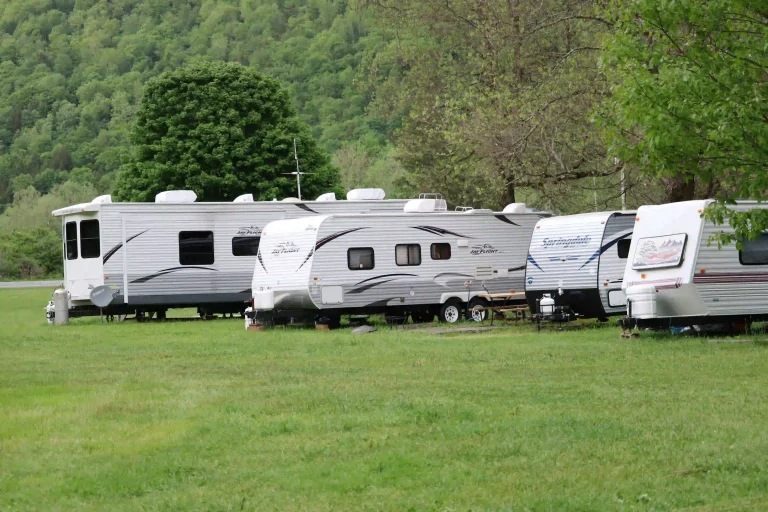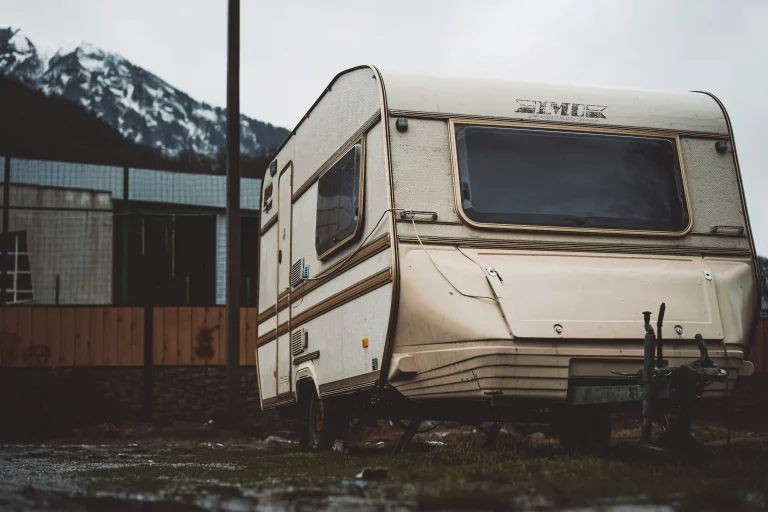Boat trailer wiring might seem daunting, but understanding the essential components and their roles makes it manageable. From wiring harnesses to lights and connectors, each part is vital for safety and functionality. Whether you’re installing a new system or troubleshooting issues, this guide provides clear insights to keep your trailer ready for the road and water. This blog will lead you to learn how to wire like a pro!
What Are the Essential Components of Boat Trailer Wiring?
Knowing the elements involved in wiring a boat trailer is essential for ensuring the functioning of its electrical system—a crucial aspect for those seeking to excel in boat trailer wiring mastery.
Identifying Key Wiring Components
Firstly you must pinpoint the parts used in the wiring of a boat trailer. These commonly consist of:
- Wiring Harness: This is the main connection point for all electrical components.
- Lights: Tail lights, brake lights, and turn signals are essential for safety and compliance.
- Connectors: These are used to join wires and ensure a secure connection.
- Ground Wire: Critical for completing the electrical circuit.
- Fuses: Protect the wiring from electrical surges.
How to Wire a Boat Trailer from Scratch?
Setting up the wiring for a boat trailer from the beginning may seem challenging at first but by planning and carrying out the task meticulously; you can complete it effectively The key is to grasp each stage of the process to ensure a secure wiring arrangement.
What You’ll Need
Firstly you should make sure you have all the tools and materials you need before you start.
- Wire cutters/strippers
- Electrical tape
- Screwdrivers
- A new wiring harness kit
- Replacement lights (if needed)
- Connectors and fuses
Preparation Steps
Getting ready is crucial when dealing with boat trailer wiring tasks! Start by making sure your work area is well organized and double-check that you have all the tools and parts within reach for the job ahead. Make sure to take a look at any manuals and diagrams that pertain to the model of your trailer well—it’s always helpful to have a good understanding before you get started.
Step-by-Step Wiring Process
Assess Your Trailer’s Requirements
First start by evaluating the requirements of your trailer. Take into account factors like the kind of lights needed and any extra features such as side indicators or reflectors.
Remove Old Lights and Wiring
Make sure to take out any outdated lights and wiring from your trailer with caution ensuring that all connections are safely disconnected to prevent any harm to the components.
Install the Main Harness
To set up the wiring system lay it out along the trailer frame and use clips or ties to keep it in place for a smooth journey.
Running the Wires
Connect the wires to each spot on the trailer ensuring there is adequate slack for adjustments while avoiding too many loops that could lead to damage in the long run.
Connecting the Lights
Make sure to use the connectors to link each fixture securely and remember to insulate the connections with electrical tape to keep them safe from moisture exposure.
Testing the Connections
After connecting all the components ensure to check each light function (brake lights, tail lights, and turn signals) by using either a power source or connecting it to a vehicle. This will help confirm that everything is functioning properly before you start driving.
How Can You Troubleshoot Common Boat Trailer Wiring Issues?
Sometimes after setting up the wiring on a boat trailer system problems can still pop up unexpectedly. Understanding how to troubleshoot these issues is essential for keeping everything running smoothly.
Diagnosing Electrical Problems
Begin by troubleshooting any issues that may arise such as inspecting for indications, like damaged cables or rusty connectors that could interfere with the flow of power.
Solutions to Common Problems
Dealing with problems quickly can help avoid serious issues from arising.
Fixing Corroded Connections
Frequent issues in trailers exposed to water environments often involve corroded connections, which can be addressed by cleaning areas using a wire brush and applying grease to prevent future corrosion issues.
Replacing Damaged Wires
If you discover any wires that are damaged or frayed in your trailer’s wiring system make sure to replace them with the gauge wire. Be certain that the new wires are adequately insulated and securely fastened along their route across the trailer frame proficiently in handling boat trailer wiring intricacies and solutions are crucial for securing a reliable towing experience whenever you transport your vessel.
What Are Some Maintenance Tips for Long-lasting Boat Trailer Wiring?
Taking care of your boat trailer’s wiring is crucial to keep it working well for a time and avoid repairs later on. Learning the maintenance tips will assist you in regular inspection routines.
Performing checks is essential to catch any issues at a stage. Remember to:
- Conduct visual checks of all wiring components, including harnesses, lights, and connectors.
- Look for signs of wear, corrosion, or damage that may affect functionality.
- Test the electrical system periodically to ensure all lights and signals operate correctly.
Protective Measures Against Environmental Damage
Boat trailers are frequently subjected to conditions that may cause the wiring to deteriorate over time; incorporating protective measures can greatly enhance the longevity of your wiring setup.
Using Protective Coatings
One way to keep your wiring safe from moisture and rust is by using coatings.
- Using dielectric grease on connectors to prevent corrosion.
- Applying a water-resistant sealant on exposed wires and connections.
Storing Your Trailer Properly
It’s important to make sure you store your boat trailer wiring properly when it’s not being used.
- Store your trailer in a dry, sheltered area to minimize exposure to the elements.
- Cover the trailer with a weatherproof tarp if indoor storage isn’t available.
Who Is Go Trailer and Why Choose Them as Your Supplier?
Choosing a supplier for boat trailer parts requires a respected company in the industry like Go Trailer that excels in providing quality components.
Overview of Go Trailer’s Offerings
At Go Trailer, you can find a selection of products tailored to suit trailer requirements including:
- High-quality trailer jacks with different payload capacities and finishes.
- Durable weld-on swivel jacks with foot plates for added stability.
- Comprehensive solutions for customers, including tailored trailers with specific requirements.
Benefits of Choosing tog Go Trailer
Opting for Go Trailer as your provider comes with benefits:
- They offer products with robust specifications such as high load capacities and protective finishes like zinc plating.
- Their commitment to quality ensures that their trailers are durable and functional, leading to increased customer satisfaction.
FAQs on Boat Trailer Wiring
Knowing about the inquiries concerning boat trailer wiring can guide you in making informed choices when it comes to setting up and keeping it.
What Gauge Wire Should I Use for My Boat Trailer?
The choice of wire gauge for your trailer is determined by the needs of its components typically speaking:
- Heavier loads require thicker wire (lower gauge numbers).
- Consult manufacturer guidelines or seek professional advice for specific recommendations based on your setup.
Can I Use Any Connector for My Boat Trailer Wiring?
Some connectors may not be recommended for use in boat trailer wiring. It’s crucial to consider the options carefully:
- Use connectors designed specifically for marine environments due to their resistance to moisture and corrosion.
- Ensure connectors match the wire gauge used in your system for secure connections.
How Often Should I Check My Boat Trailer’s Wiring?
Regular inspections are crucial to ensure things keep running efficiently.
- Inspect the wiring every few months or before long trips.
- Perform checks more frequently if the trailer is used in saltwater environments due to increased corrosion risk.
By sticking to these tips and advice mentioned here—you can make sure that the wiring system of your boat trailer stays dependable and effective for a time.


